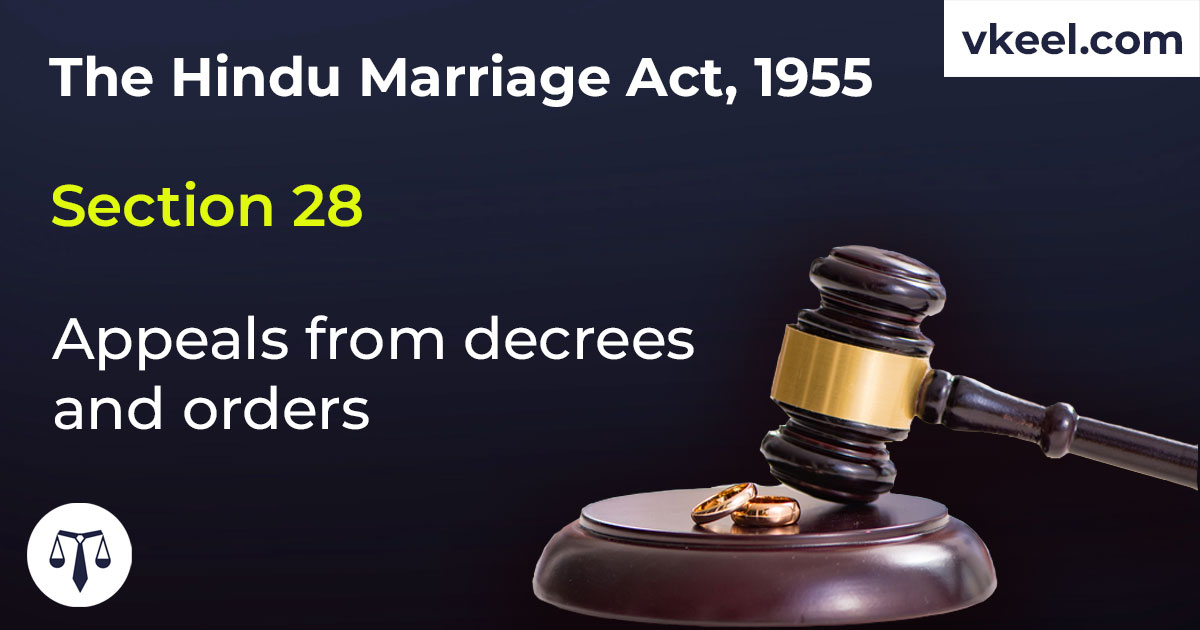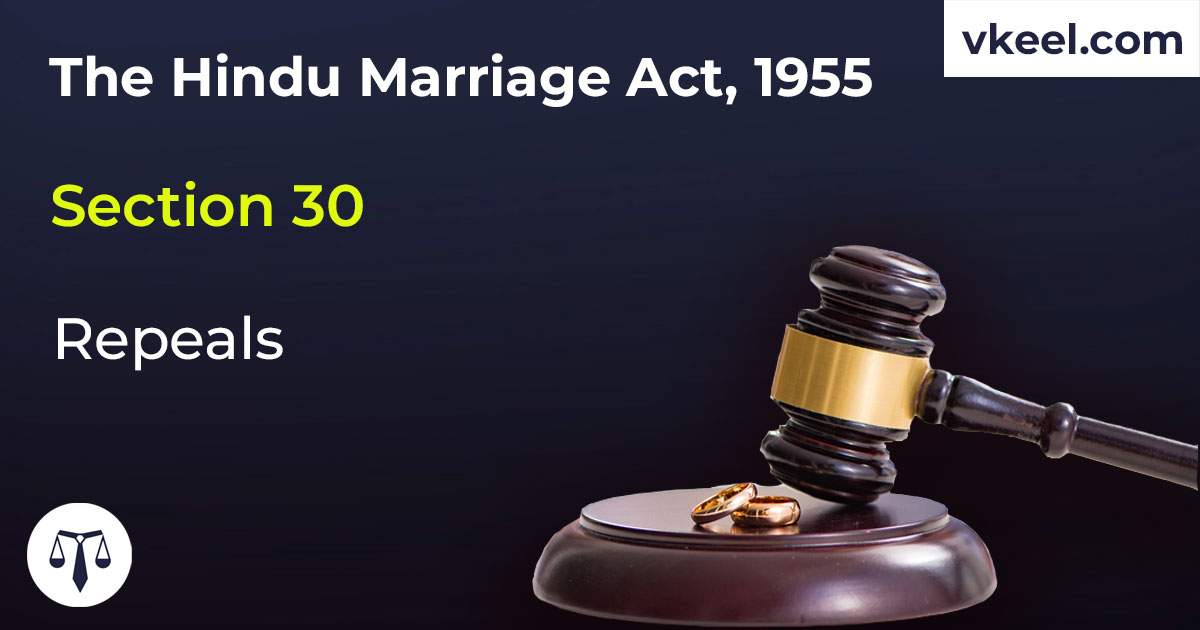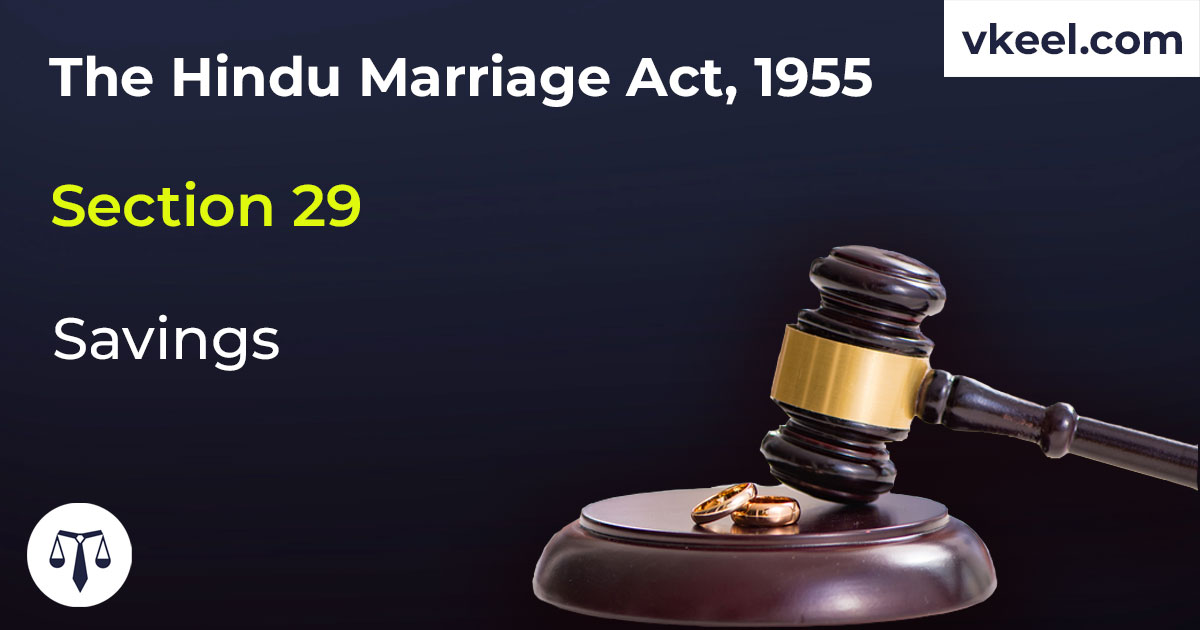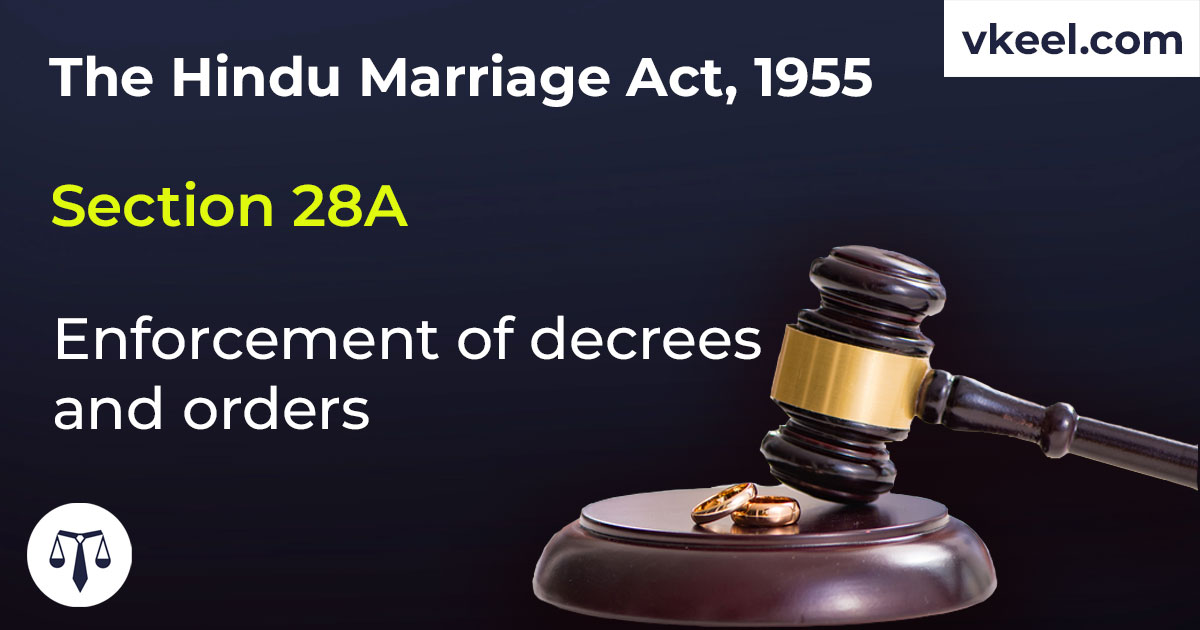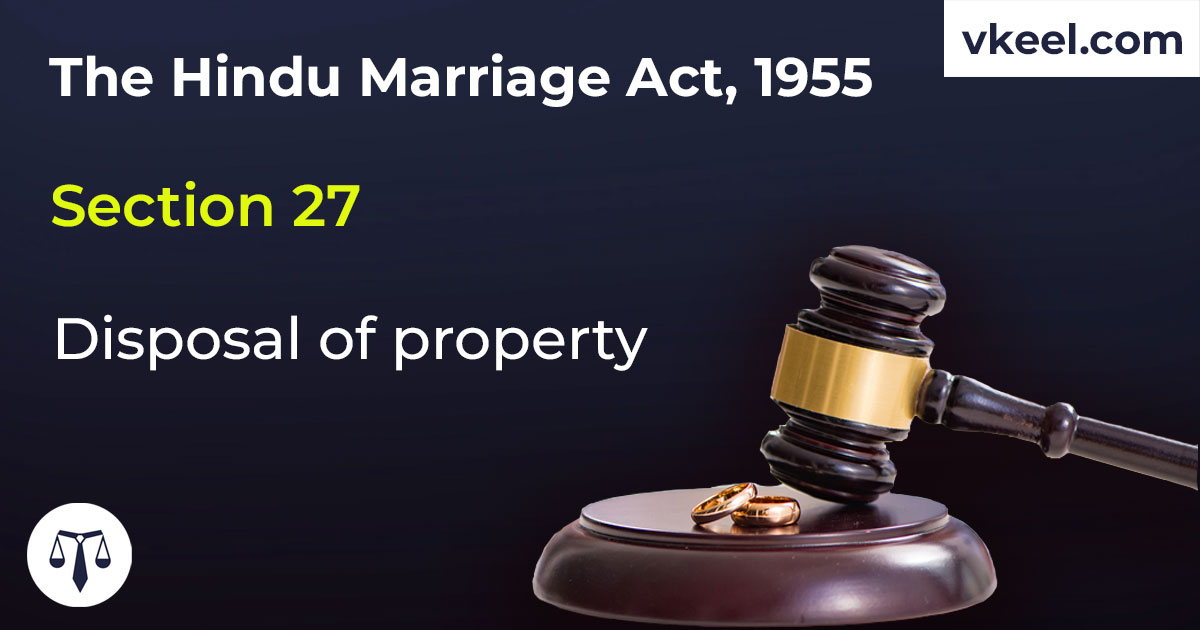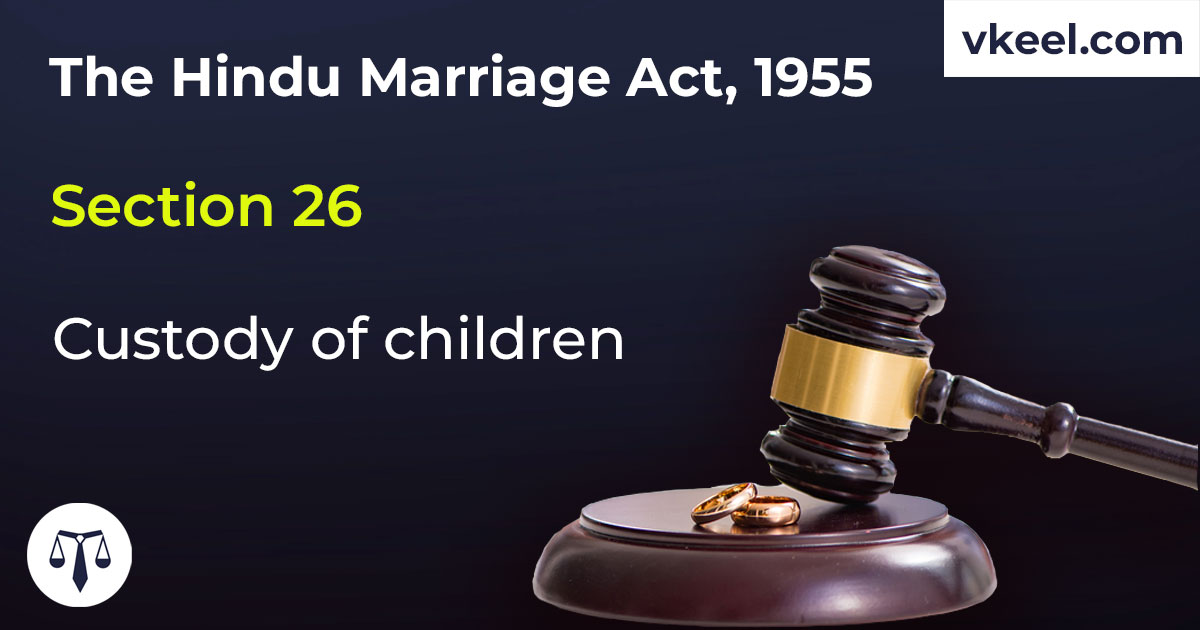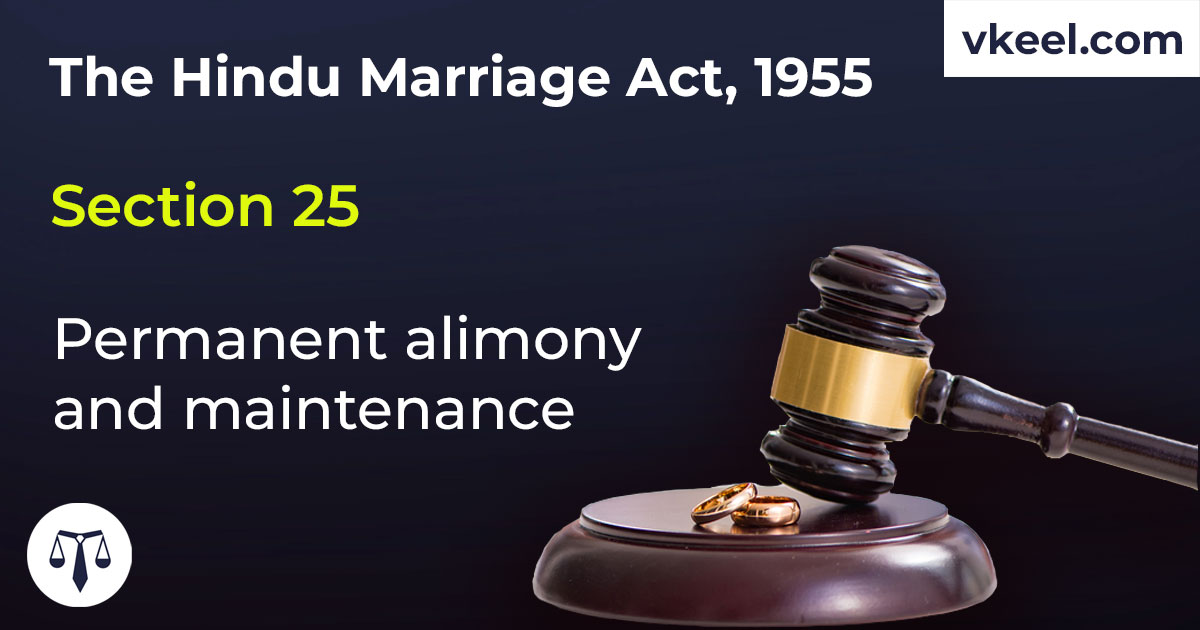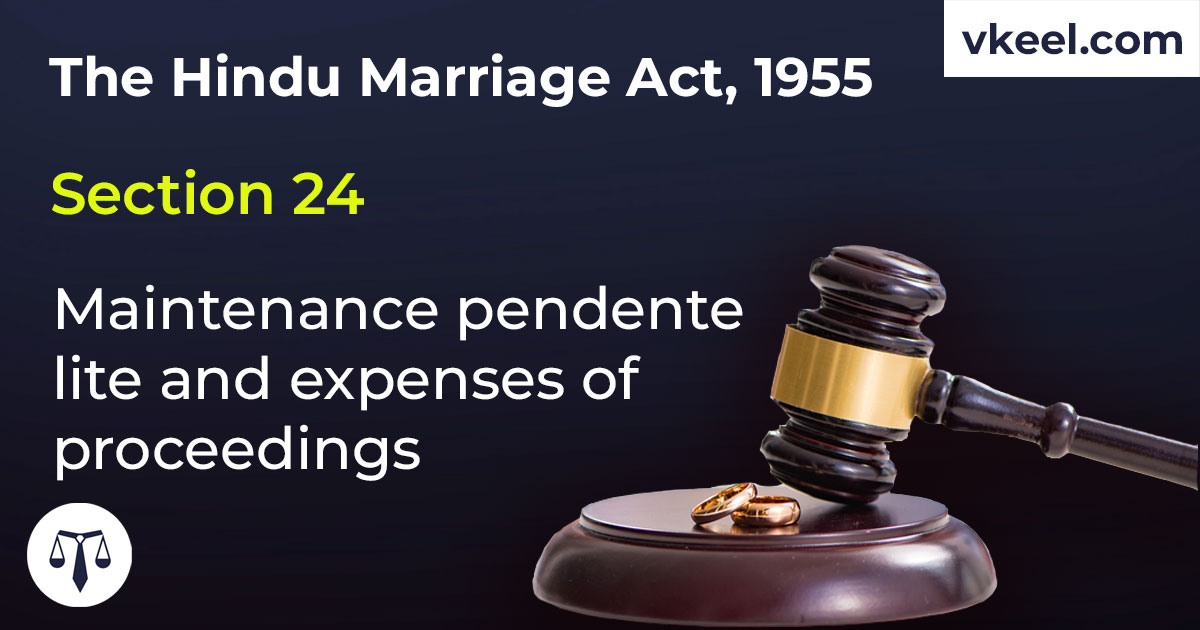Section 28 Hindu Marriage Act 1955 – Appeals from decrees and orders
By Vkeel Team
Table of Contents
Description
“Section 28 Hindu Marriage Act 1955”
1[(1) All decrees made by the court in any proceeding under this Act shall, subject to the provisions of sub-section (3), be appealable as decrees of the court made in the exercise of its original civil jurisdiction, and every such appeal shall lie to the court to which appeals ordinarily lie from the decisions of the court given in the exercise of its original civil jurisdiction.
(2) Orders made by the court in any proceeding under this Act under section 25 or section 26 shall, subject to the provisions of sub-section (3), be appealable if they are not interim orders, and every such appeal shall lie to the court to which appeals ordinarily lie from the decisions of the court given in exercise of its original civil jurisdiction.
(3) There shall be no appeal under this section on the subject of costs only.
(4) Every appeal under this section shall be preferred within a 2[period of ninety days] from the date of the decree or order
Provisions of Section 28 Hindu Marriage Act 1955 for Appeals from Decrees and Orders
Section 28 Hindu Marriage Act 1955 outlines the provisions for appeals from decrees and orders. This section states that any person aggrieved by a decree or order of a district court may appeal to the High Court. The appeal must be made within a period of ninety days from the date of the decree or order.
The High Court may, if it thinks fit, grant an extension of time for filing the appeal. The High Court may also, if it thinks fit, admit an appeal after the expiration of the said period of ninety days, if it is satisfied that the appellant was prevented by sufficient cause from filing the appeal in time.
The High Court may, if it thinks fit, grant a certificate to the appellant to appeal to the Supreme Court against any decree or order of the High Court. The certificate must be applied for within a period of ninety days from the date of the decree or order of the High Court.
The High Court may, if it thinks fit, grant an extension of time for filing the application for the certificate. The High Court may also, if it thinks fit, admit an application for the certificate after the expiration of the said period of ninety days, if it is satisfied that the appellant was prevented by sufficient cause from filing the application in time.
The Supreme Court may, if it thinks fit, grant special leave to appeal from any decree or order of the High Court. The Supreme Court may also, if it thinks fit, admit an appeal after the expiration of the said period of ninety days, if it is satisfied that the appellant was prevented by sufficient cause from filing the appeal in time.
The provisions of Section 28 Hindu Marriage Act 1955 provide a clear framework for appeals from decrees and orders of district courts, High Courts and the Supreme Court. It is important to note that the time limits for filing appeals and applications for certificates are strictly enforced and extensions of time are only granted in exceptional circumstances.
Benefits of Section 28 Hindu Marriage Act 1955 for Appeals from Decrees and Orders
Section 28 Hindu Marriage Act 1955 is particularly important as it provides for appeals from decrees and orders passed by the courts. This section is beneficial to both parties involved in a dispute, as it allows them to challenge the decision of the court if they feel it is unjust or incorrect.
Section 28 Hindu Marriage Act 1955 states that any party to a suit may appeal against any decree or order passed by the court. This means that if either party is unhappy with the decision of the court, they can file an appeal to a higher court. This is beneficial as it allows parties to challenge the decision of the court if they feel it is incorrect or unjust.
The appeal process is also beneficial as it allows parties to present new evidence or arguments that may not have been considered by the court. This can be beneficial in cases where the court has made a decision based on incomplete or incorrect information. By appealing, parties can present new evidence or arguments that may lead to a different outcome.
Furthermore, the appeal process allows parties to challenge the decision of the court if they feel it is based on incorrect interpretation of the law. This is beneficial as it allows parties to challenge the court’s decision if they feel it is based on an incorrect interpretation of the law.
Finally, the appeal process allows parties to challenge the decision of the court if they feel it is based on bias or prejudice. This is beneficial as it allows parties to challenge the court’s decision if they feel it is based on bias or prejudice.
In conclusion, Section 28 Hindu Marriage Act 1955 is beneficial for appeals from decrees and orders passed by the court. It allows parties to challenge the decision of the court if they feel it is incorrect or unjust, and allows them to present new evidence or arguments that may lead to a different outcome. Furthermore, it allows parties to challenge the decision of the court if they feel it is based on incorrect interpretation of the law or bias or prejudice.
1. Subs. by Act 68 of 1976, s. 19 (w.e.f. 27-5-1976).
2. Subs. by Act 50 of 2003, s. 5, for period of thirty days (w.e.f. 23-12-2003).
Description Source: indiacode
Disclaimer:
The information provided in the article is for general informational purposes only, and is not intended to constitute legal advice or to be relied upon as a substitute for legal advice. Furthermore, any information contained in the article is not guaranteed to be current, complete or accurate. If you require legal advice or representation, you should contact an attorney or law firm directly. We are not responsible for any damages resulting from any reliance on the content of this website.

